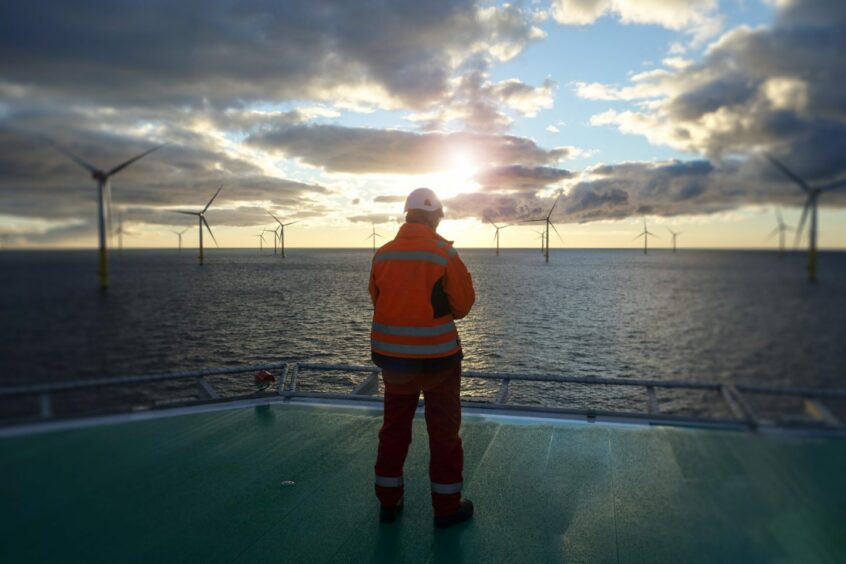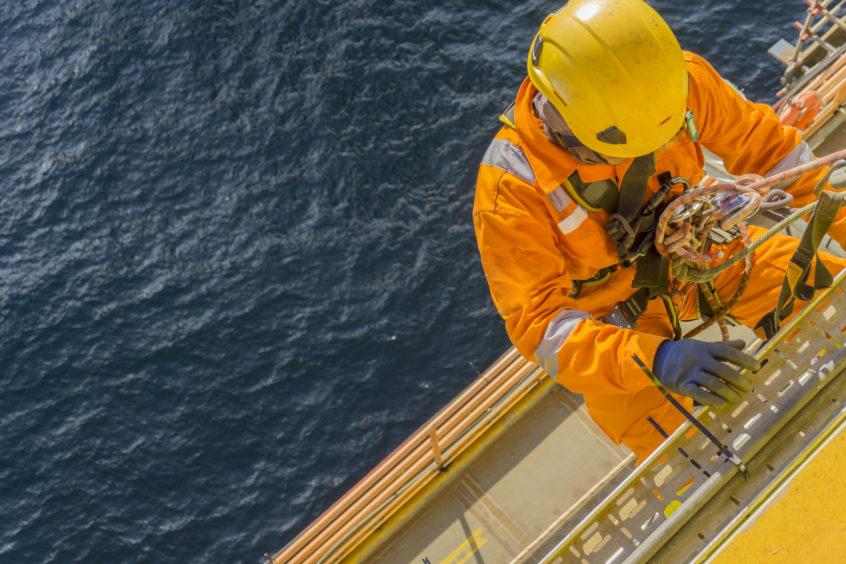
There are hopes a solid pipeline of offshore projects will push firms to invest in the next generation of energy workers.
James Gregg, of north-east firm Motive Offshore Group, says spend in offshore wind, combined with the new North Sea oil and gas licensing round, will ease fears “about the industry’s long-term future”.
Over the next eight year, around £170 billion is forecast to be spent on new UK offshore energy activity, analysis has found.
Such “long-term stability” should incentivise firms to “invest in trainees and apprentices”, helping the sector to attract fresh faces.
Where are the skills?
That would go some way towards relieving North Sea skills shortages – a current and emerging problem that is tipped to worsen.
Mr Gregg, chief operating officer at the Aberdeenshire marine equipment fabrication firm, said: “At the heart of the UK’s energy security strategy is a major expansion of offshore energy from offshore wind to hydrogen, requiring a transformation of the workforce.
“Much of the demand for new workers will also be in new roles such as sustainability or digital talent often found in outside industries and among a younger generation.
“Yet the UK currently has an ageing energy workforce as the industry has often preferred experienced hires to entry-level recruits due to the risk of investing in long-term training in an historically cyclical sector.
“Attracting new renewable and digital skills has also proved challenging for an offshore energy industry historically perceived as carbon-intensive and technologically traditional. This means that despite the booming energy industry offering increasingly attractive salaries and career prospects, just 12% of the current workforce is under 30.”
As the issue of worker shortages grows in the UK, industry, government and unions are plotting ways to attract workers to the energy industry.
Skills passport all but there
On top of drawing in fresh blood, there is a push to break down the barriers for those wanting to move between different North Sea sectors.
A skills passport, which would make it easier for an oil and gas worker to move to offshore wind, is due to go live next year, with hopes it will ease long-standing worker complaints about duplicated training.
Mr Gregg said: “The industry could also accelerate career progression by aligning industry standards, solutions and certifications across sectors such as offshore oil and gas and renewables, enabling more opportunities for internal transfers.
“For example, 90% of the offshore oil and gas workforce has skills overlapping with sectors such as offshore wind. Our technical workforce now works across both our fossil fuel and renewable projects, equipping workers with a wider range of transferrable skills and career development opportunities.
“This will also help future-proof the workforce by moving away from specialist skills silos and rigid roles towards training programmes designed around creating a flexible, multi-skilled labour pool.”
Recommended for you


 © Shutterstock
© Shutterstock